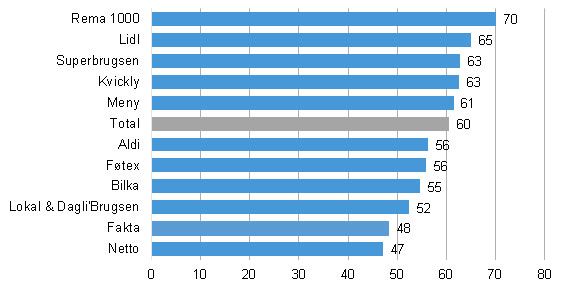News
Denmark’s favourite supermarket is … Norwegian
This article is more than 8 years old.
Rema 1000 top of the pops, while Netto struggles to impress

REMArkable: Worth more than 1,000 words (photo: Kjetil Ree)
You might think that a sense of national pride would encourage the Danes to shop at Danish supermarkets like Netto, Fakta and Bilka. They may very well do so, but it isn’t where their hearts lie.
A new survey by customer service analysis firm Loyalty Group has revealed that Norwegian chain Rema 1000 actually has the most loyal customers, followed by German chain Lidl and Superbrugsen.
“Rema 1000’s concept, of a local supermarket with a strong catchment area securing the right products at competitive prices, has been a success in Denmark,” said Lars Jepsen, the head of research for Loyalty Group.
“Rema 1000 has understood that the intimate customer experience is an area in which the chain can stand apart when compared to other discount chains. The good customer experience goes hand in hand with good earnings and Rema 1000 is one of the most viable supermarket chains on the Danish market.”
READ MORE: Coop supermarkets to become more ‘local’
Netto-blaster
On Loyalty Group’s loyalty index, Rema 1000 scored 70 points out of 100, followed by Lidl (65), Superbrugsen and Kvickly (both 63) and Meny (61).
Aldi and Føtex (both 56), Bilka (55), Lokal & Dagli’Brugsen (52), Fakta (48) and Netto (47) completed the rankings.
The survey was conducted based on the responses of 4,100 customers across Denmark. See the index below.











































